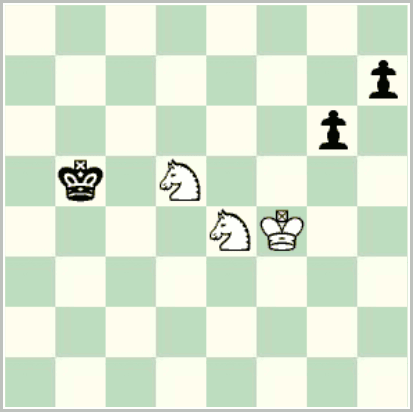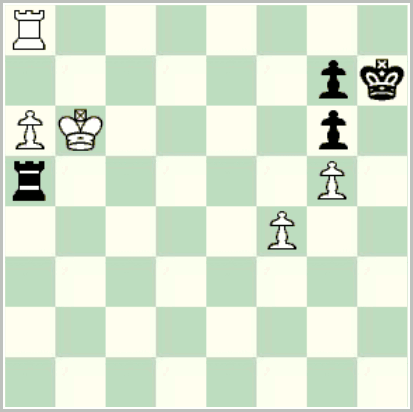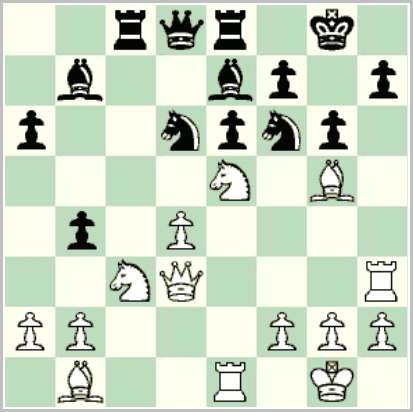David’s post on Maeve Binchy and chess at Kiely’s in Donnybrook brought back vivid personal memories: I remember playing a league match upstairs there very early in my playing career, probably 1976 or so, when I was 12. I even recall some whispered discussions in the background on whether I was too young to be allowed in at all, but this was when my game was already under way, and my presence was graciously accepted.
Maeve Binchy wrote well. She certainly captures the atmosphere as I remember it.
I was a bit sorry to see that Kiely’s had shut down—apparently its closing by the family who had owned it for thirty years was announced in April 2018, and it was sold in November 2019 to a developer who will turn it into high-end apartments and a rooftop bar. “It is understood the new venue will recognise the site’s strong rugby heritage”, says the Irish Times. But it has a chess heritage too.
But back to Maeve Binchy’s article. She was puzzled at first by the term “endgame theory”, but David quotes her summary: “you must learn to recognise positions on the board which are leading to a winning, a drawing or a losing ending and deal with them.” Well put! But it’s not always so easy. Here are two closely related examples where a pair of Ireland’s leading players had drawing endings but did not deal properly with them, getting a near-identical losing position instead, within a month of each other.
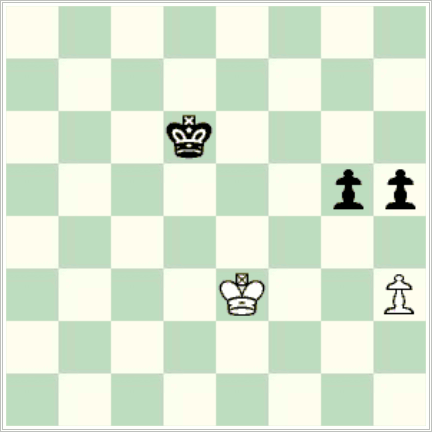 The first position is from Collins – Goloshchapov, Monarch Assurance Isle of Man Open 2002. The last exchange, on move 60, left a drawn ending, with the white and black kings on f3 and e5 respectively, and the pawns where they are in the diagram, with White to move. Goloschapov played on, and his persistence was rewarded when Collins played 67. Kd4?. The drawback is that after the continuation 67… Ke6 68. Ke4 Kf6, the white king could no longer get to the unique “corresponding square” f2, which it had already reached twice, with the black king on f6, on moves 62 and 65. From the diagram, White must play 67. Kd2! to draw (67… Ke6 68. Ke2 Kf6 69. Kf2=).
The first position is from Collins – Goloshchapov, Monarch Assurance Isle of Man Open 2002. The last exchange, on move 60, left a drawn ending, with the white and black kings on f3 and e5 respectively, and the pawns where they are in the diagram, with White to move. Goloschapov played on, and his persistence was rewarded when Collins played 67. Kd4?. The drawback is that after the continuation 67… Ke6 68. Ke4 Kf6, the white king could no longer get to the unique “corresponding square” f2, which it had already reached twice, with the black king on f6, on moves 62 and 65. From the diagram, White must play 67. Kd2! to draw (67… Ke6 68. Ke2 Kf6 69. Kf2=).
[Click to replay the full game.]
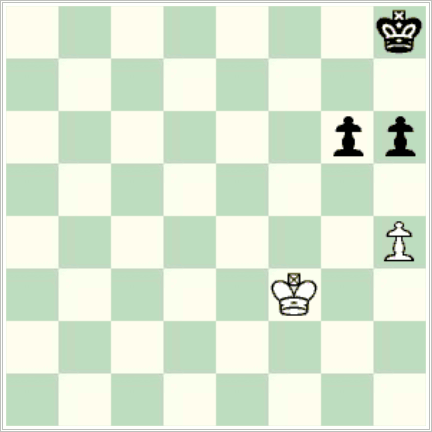 Less than a month later, Heidenfeld – Gagunashvili, Bled Olympiad 2002 reached the position at right, with White to play. There followed 62. Kf4 Kg7 63. Ke5?, and after 63… Kf7, the position was the same as in Collins – Goloshchapov at move 68, shifted one rank higher, and Heidenfeld was lost for the same reason: here, the white king could not reach the unique “corresponding square” f3. On move 63, White needs to be able to meet 63… Kf7 with 64. Kf3, and 63… Kf8 with 64. Kf4, so any of 63. Ke4/e3/g4/g3 will maintain the draw with best play, but no other moves (63. Kf3? Kf7 and White is in zugzwang.)
Less than a month later, Heidenfeld – Gagunashvili, Bled Olympiad 2002 reached the position at right, with White to play. There followed 62. Kf4 Kg7 63. Ke5?, and after 63… Kf7, the position was the same as in Collins – Goloshchapov at move 68, shifted one rank higher, and Heidenfeld was lost for the same reason: here, the white king could not reach the unique “corresponding square” f3. On move 63, White needs to be able to meet 63… Kf7 with 64. Kf3, and 63… Kf8 with 64. Kf4, so any of 63. Ke4/e3/g4/g3 will maintain the draw with best play, but no other moves (63. Kf3? Kf7 and White is in zugzwang.)
[Click to replay the full game (note: click the triangle at right in the controls under the board to enter into variations).]

